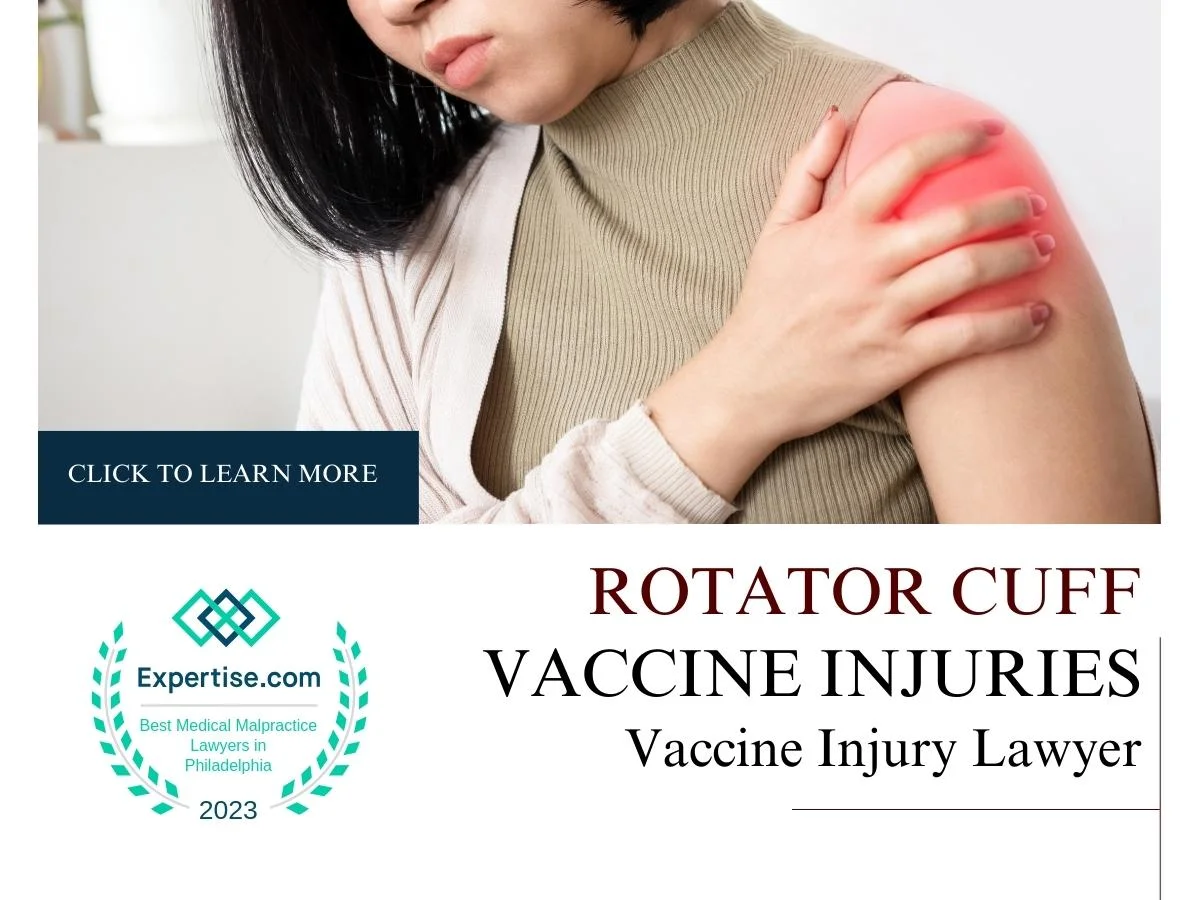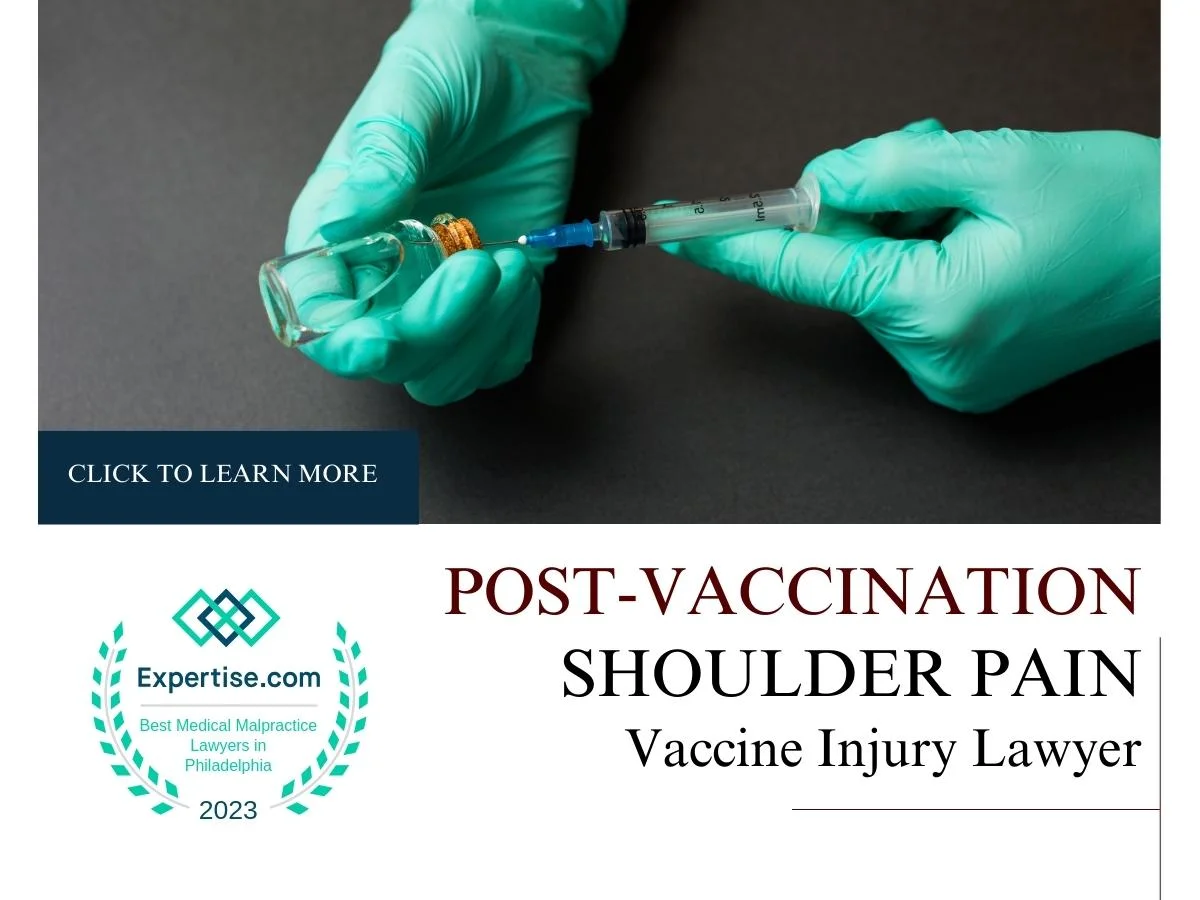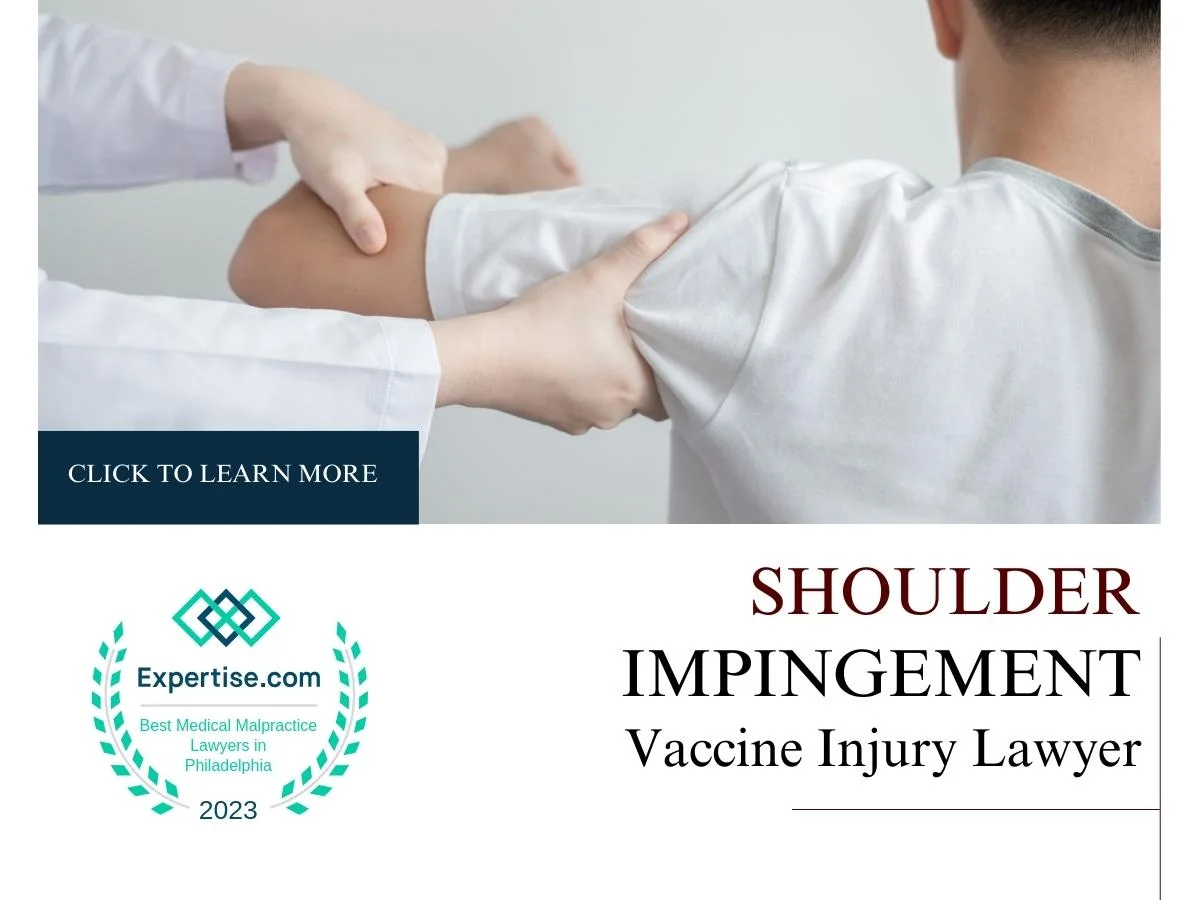Rotator Cuff Tears from Vaccines: Causes, Symptoms, and Treatment
A rotator cuff tear occurs when one of the tendons in the shoulder detaches from the bone, which can lead to pain, weakness, and a limited range of...
3 min read
Vaccine Injury Law Resources / Leigh Finfer / Adhesive Capsulitis from Vaccines: Causes & Treatment
 Leigh Finfer
:
Jul 11, 2023 3:28:12 PM
Leigh Finfer
:
Jul 11, 2023 3:28:12 PM
Developing adhesive capsulitis, or "frozen shoulder," after a vaccination, can be painful and limit your movement. This condition occurs when the shoulder's connective tissue thickens and becomes inflamed. Treatments range from medication and physical therapy to surgery. If you suspect a vaccine caused your condition, seek medical advice and legal assistance.
Though uncommon, an improperly administered vaccine may cause adhesive capsulitis. Typically, this is a result of over-penetration of the needle, poor angle of administration, and improper location of administration. In a 2007 paper by the medical journal “Vaccine”, they determined that the likely cause of adhesive capsulitis following a vaccination was due to the depth and location of the vaccination. Whereas during proper vaccinations, the needle enters the muscle, in these cases, it was determined that the needle went too deep, instead entering the bursa (thin fluid-filled sacs that reduce friction around bones, tendons, and muscles). The improper needle depth caused an immune response in the bursa, leading to inflammation, pain, and decrease in range of motion.
The symptoms of adhesive capsulitis generally present in three stages. The first stage is known as the “freezing” or “pain” stage. During this stage, patients typically begin to feel a slow onset of pain, accompanied by a gradual decrease in the range of motion of the shoulder. This stage can last for as little as six weeks and as long as nine months.
The second stage is the “frozen” or “adhesive” stage. During this stage, pain may decrease significantly compared to the freezing stage, and in many cases may go away entirely. However, while pain may decrease, the range of motion does not recover. Stiffness in the shoulder remains. This stage can last for four to twelve months.
The final stage is known as the “thawing” or “recovery” stage. Here, the range of motion of the shoulder begins to return to normal. This stage may last for five to twelve months.
Treatment is not necessary in some cases of adhesive capsulitis. In many patients, the natural recovery in the “thawing” stage may allow symptoms to completely resolve on their own over time. However, there are multiple options available for further treatment. Because the exact cause of adhesive capsulitis is unknown in many cases, typical treatment involves a trial of different types of therapies to determine which one is most effective for a particular case.
The most common treatments are painkillers, anti-inflammatory medications, exercise, cortisone and steroid injections, and physical therapy combined with Extracorporeal Shock Wave Therapy (ESWT). However, if these treatments are not effective, surgery is an option in extreme cases. Like with nonsurgical treatments, there is no standard surgical treatment for adhesive capsulitis. Surgical options may involve manual stimulation of the shoulder while the patient is under anesthesia or physically cutting the adhesions in an attempt to restore range of motion. Further options include fluid injections into the shoulder, but results from this surgical option are controversial.
The prognosis for adhesive capsulitis varies depending on the severity, cause, and treatment received. According to a paper in the journal Shoulder & Elbow, adhesive capsulitis may resolve on its own between one to three years after symptoms begin. However, between 20%-50% of patients do not fully recover, and develop lasting symptoms. If you believe you are suffering from adhesive capsulitis, please consult your doctor.
Developing adhesive capsulitis following a vaccination can be a stressful and painful thing, and it can greatly impact your personal and professional life. But you don’t need to face it alone. At My Vaccine Lawyer, our dedicated team of experienced vaccine injury lawyers are committed to offering you the resources you need, and will advocate for your rights and help you understand your legal options.
If you believe you have developed adhesive capsulitis due to a vaccination, contact My Vaccine Lawyer. Our team will help provide you with the guidance you need, because nobody should need to file a vaccine injury claim alone when they should be focusing on their recovery. Contact My Vaccine Lawyer to take the first steps towards the justice and compensation you deserve.
Leigh A. Finfer is a vaccine and personal injury attorney at Muller Brazil and My Vaccine Lawyer. Mrs. Finfer has been with the firm since June 2018 and her practice includes representing vaccine injury victims, personal injury victims, and those who suffer injuries as a result of unsafe drugs and medical devices.

A rotator cuff tear occurs when one of the tendons in the shoulder detaches from the bone, which can lead to pain, weakness, and a limited range of...

Suppose you have recently received a flu shot and are experiencing tingling sensations in your arm and hand. In that case, you may be concerned about...

Shoulder impingement syndrome is a medical condition that arises when the shoulder blade rubs against or pinches the muscles and tendons in the...
